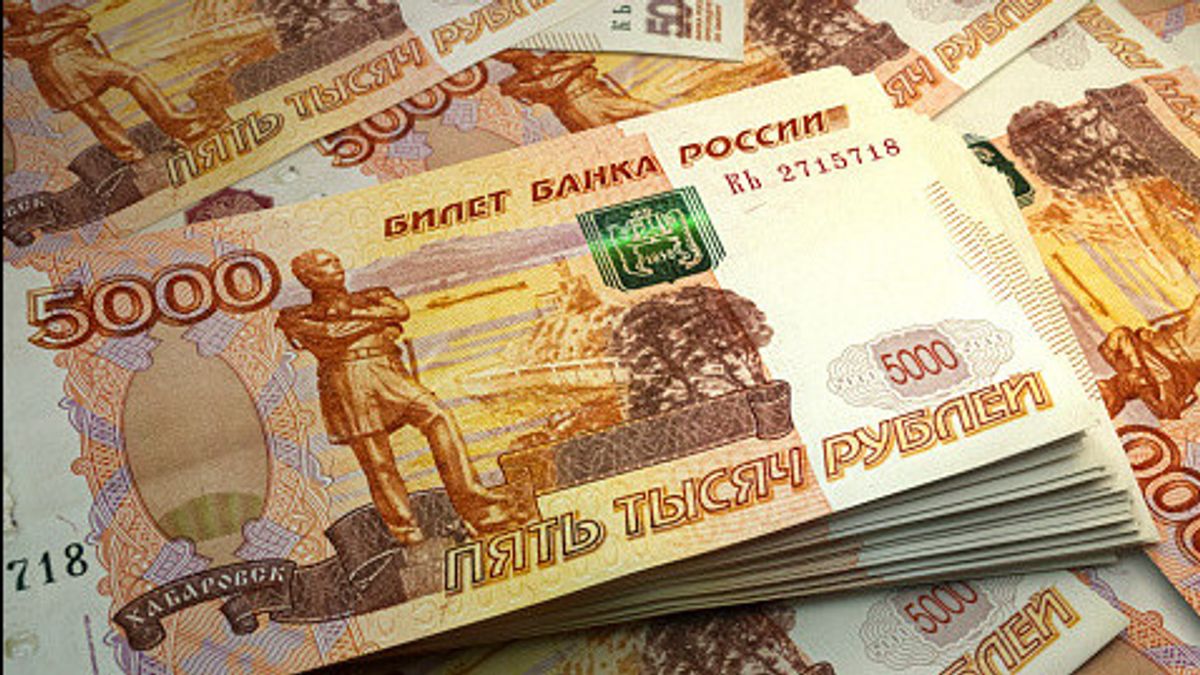JAKARTA - Russia's central bank stated that inflationary pressures across the economy remained strong during the first two weeks of February. This is due to a decline in the value of Russia's currency, Rubel.
Russia recorded inflation of 11.8 percent on an annual basis in January, nearly three times the central bank's official target of 4.0 percent. The bank hinted last week it was preparing to raise the basic interest rate to cool inflation.
"Operational data for the first two weeks of February show a tendency to increase price pressure continuing," the bank said on Friday, February 17 in a report citing Antara.
Prices across Russia fluctuate in the year since Russia invaded Ukraine - with a period of rapid inflation following the imposition of Western sanctions followed by months of deflation as capital controls pushed rubles higher.
But the decline in revenue from key oil and gas sales hit Russia again this year.
Rubel has fallen 16 percent since early December, when the EU embargo and the G7 state price limit on Russia's crude oil sales came into effect.
"The exchange rate has affected (price) products that depend most on imports in January, and if rubles stays at current levels, it will continue to have pro-inflationary effects in the coming months," the bank analyst said in the report.
The English, Chinese, Japanese, Arabic, and French versions are automatically generated by the AI. So there may still be inaccuracies in translating, please always see Indonesian as our main language. (system supported by DigitalSiber.id)








